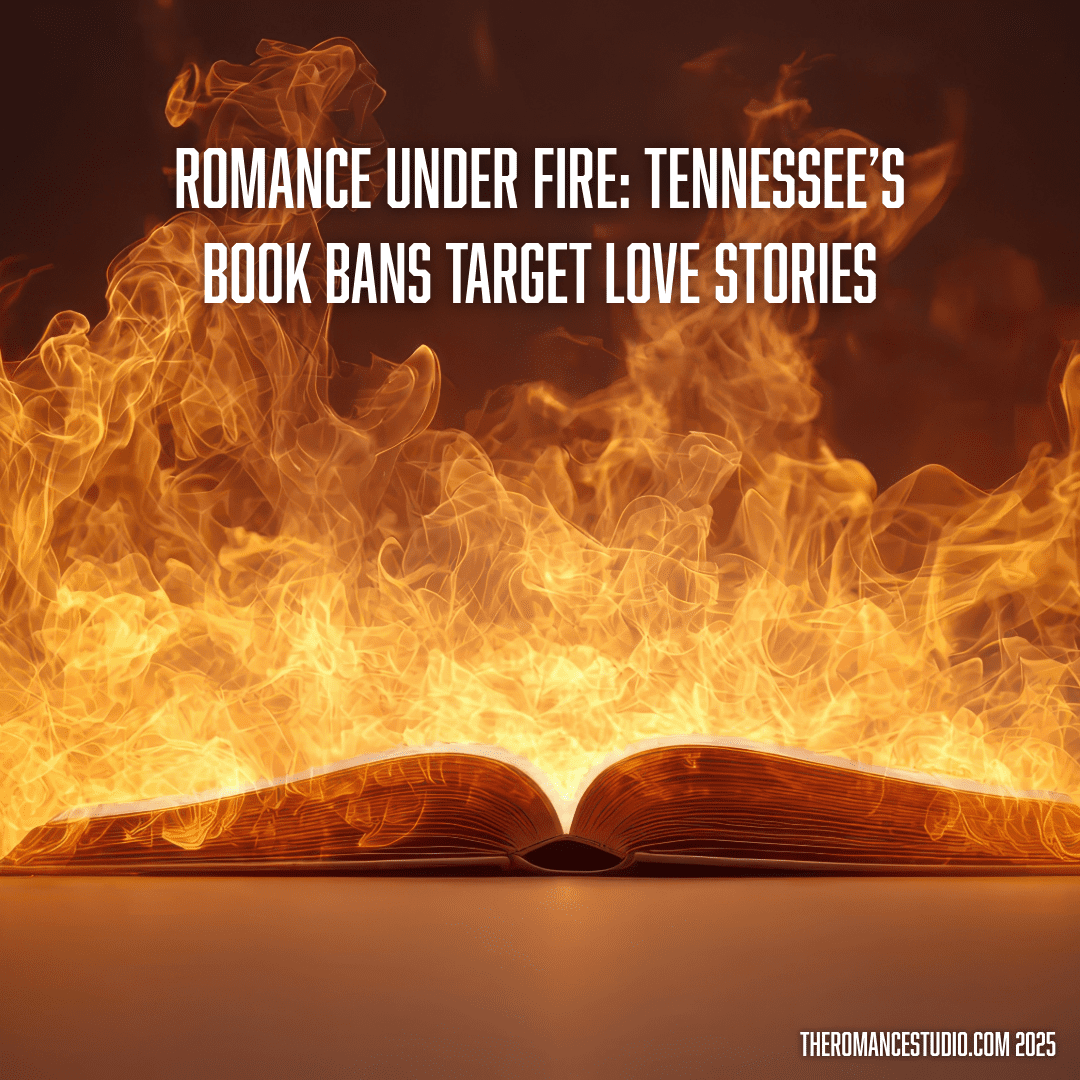Romance Under Fire: Tennessee’s Book Bans Target Love Stories
Tennessee is seeing an unprecedented surge in book bans, with nearly 1,400 titles either removed from public school libraries or heavily restricted in just the past year according to The Tennessean. That’s more than four times the number of books challenged in the state between 2021 and mid-2023. While these bans claim to target “inappropriate” content, many of the books caught in the crossfire are beloved romance novels that have inspired and empowered young readers for years.
Romance Novels on the Chopping Block
Some of the most frequently removed books are romance novels—many of them written for young adults, exploring themes of first love, personal growth, and self-discovery. Among the titles facing bans:
🔥 A Court of Thorns and Roses series by Sarah J. Maas
This wildly popular romantasy saga, following 19-year-old Feyre Archeron in a world of fae and forbidden love, was banned in over 270 instances in the 2023-24 school year. While the series does contain mature themes, it also promotes messages of resilience, agency, and love in the face of adversity.
🗡️ Throne of Glass series by Sarah J. Maas
Another YA fantasy romance by Maas, Throne of Glass follows a teenage assassin navigating a world of political intrigue and magical battles. Despite its strong female protagonist and themes of empowerment, it was pulled from shelves more than 180 times across the state.
💖 Red, White & Royal Blue by Casey McQuiston
This LGBTQ+ romance novel, which follows a love story between the First Son of the United States and a British prince, was among the books restricted or removed under the new law. The novel, which gained mainstream popularity and was adapted into a movie, has faced repeated challenges in Tennessee and beyond.
📖 Like a Love Story by Abdi Nazemian
A deeply moving YA novel about an Iranian boy navigating love and identity during the height of the AIDS crisis in New York City, Like a Love Story has been widely celebrated but is now among the books banned in Tennessee.
🧛 Twilight series by Stephenie Meyer
Yes, even Twilight—the paranormal romance series that turned a generation into avid readers—has been challenged and banned 34 times in the past year. Apparently, even vampires aren’t safe from censorship.
The Growing Trend of ‘Soft Censorship’
The removal of these romance novels is part of a broader movement of book banning sweeping the country. Many schools aren’t just responding to complaints—they’re proactively removing books in an effort to avoid controversy.
Monroe County Schools, which removed a staggering 574 books, did so before any public complaints were even filed. Administrators are facing increasing pressure from the Age Appropriate Materials Act, a 2022 law requiring schools to review library collections and pull books that might violate its vague content guidelines.
The result? Many schools and librarians are opting to self-censor rather than risk fines, lawsuits, or even criminal charges. Some districts, like Blount and Moore counties, don’t even track how many books they remove due to content concerns, making the true scale of censorship difficult to measure.
‘A Culture of Fear’ in Schools
Free speech advocates warn that these bans go beyond protecting children—they restrict access to diverse voices, representation, and stories that resonate deeply with readers.
“This culture of fear that they’re creating around this issue certainly is contributing to some librarians’ decisions to either not order particular books or remove books that are on the shelf,” said Deborah Caldwell-Stone, director of the American Library Association’s Office for Intellectual Freedom.
PEN America’s Kasey Meehan adds that bans disproportionately target books featuring marginalized communities, especially LGBTQ+ characters and authors of color.
“We can very directly debunk the idea that there is porn in schools, or that there is obscene material in schools,” Meehan said. “What we see happening, at a large scale, is the viewpoint of one or some impacting what’s accessible for all.”
What’s Next?
As book bans continue to rise across Tennessee and the U.S., more readers, authors, and educators are pushing back. Advocacy groups like PEN America and the American Library Association are tracking censorship efforts, while students and teachers are speaking out about the impact of losing access to books that reflect their experiences.
For now, romance novels remain among the most frequently targeted, proving that even love stories aren’t safe from censorship. But as history has shown, banning books only makes people want to read them more—so perhaps love will, once again, find a way.

